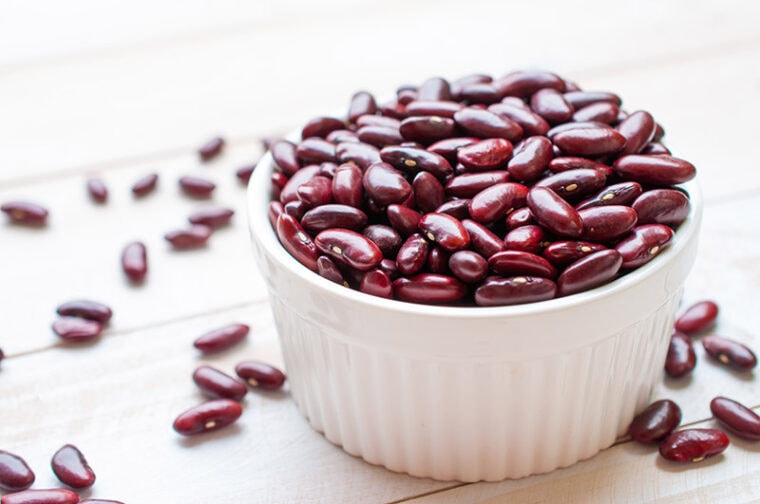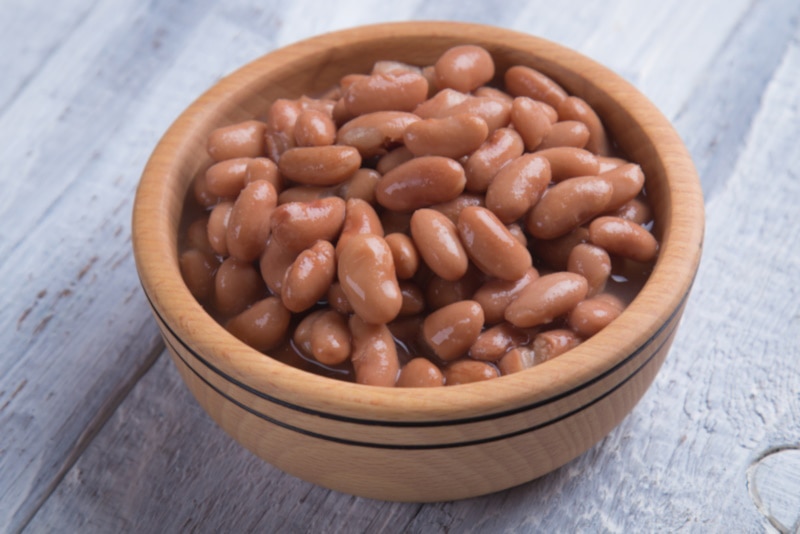
Click to Skip Ahead
The decision on what to feed our dogs is an essential aspect of dog ownership. While we all want to treat our furry friends with snacks and variety, there are some foods we should approach with caution. Among those foods are kidney beans. Can dogs eat them safely? The answer is not a simple yes! While raw kidney beans are toxic to dogs, cooked kidney beans in small amounts are usually fine. Let’s dive further into the details.
Nutritional Perks of Kidney Beans
Dogs can eat cooked kidney beans offered in moderation. Kidney beans, which belong to the legume family, are nutrient powerhouses. They offer protein, antioxidants, vitamins, and fiber, all of which can be beneficial to dogs when given appropriately.

Other Safe Beans for Your Dog
While beans are generally nutritious, not all types are suitable for your dog. The safe list includes:
Beans to Avoid
Certain beans come with risks and are best avoided for the safety of your pup:

Frequently Asked Questions
How Many Cooked Kidney Beans Can I Give My Dog at Once?
It’s always best to start with a small amount, especially if it’s the first time. A few beans mixed in with their regular food can be a good starting point. Monitor for any unusual reactions and adjust the serving size accordingly. Always consult with your vet before adding new foods to your pet’s diet.
My Dog Accidentally Ate Raw Kidney Beans. What Should I Do?
Raw kidney beans contain harmful toxins. If your dog has consumed them, it’s best to consult your vet immediately. Watch out for signs of abdominal pain, diarrhea, lethargy, or vomiting.
Can I Mix Kidney Beans With Other Foods in My Dog’s Meal?
Yes, kidney beans can be mixed with other safe foods. However, remember the 90/10 rule: 90% of your dog’s diet should come from their regular dog food and only 10% from treats or other foods.
Are Canned Kidney Beans Safe for Dogs?
Canned kidney beans might contain preservatives and excessive sodium which can be harmful to dogs. If you choose to feed canned beans, ensure they are low-sodium and free from added spices or chemicals.

How Often Can I Treat My Dog to Kidney Beans?
Think of kidney beans as an occasional treat rather than a staple in their diet. Once or twice a week in small amounts should be fine for most dogs.
Can Kidney Beans Replace Meat Protein in My Dog’s Diet?
No. While kidney beans are a good source of plant protein, dogs primarily need animal-based proteins. Beans can complement their diet but should never be the primary protein source.
Is It True Kidney Beans Can Cause Gas in Dogs?
Yes, overconsumption of beans can lead to gas and stomach upset in dogs. That’s another reason to introduce them slowly and in moderation.
Conclusion
Feeding our furry friends the right foods can sometimes feel like navigating a culinary maze. Kidney beans, when served cooked and in moderation, can be a nutritious addition to your dog’s diet, offering them protein, fiber, and antioxidants. But just as with any treat or supplementary food, moderation is key. It’s essential to be mindful of potential risks like raw bean toxicity and the upset stomach that can result from overconsumption.
It’s heartening to know that our dogs can safely enjoy some of the wholesome foods we do. Yet, always remember that their dietary needs differ from ours. While beans can be a delightful occasional treat, a balanced diet rich in animal proteins remains paramount for our canine companions. Consulting with a veterinarian and keeping their specific health needs in mind will ensure our pets remain happy, healthy, and full of tail-wagging energy.
Featured Image Credit: Amawasri Pakdara, Shutterstock







